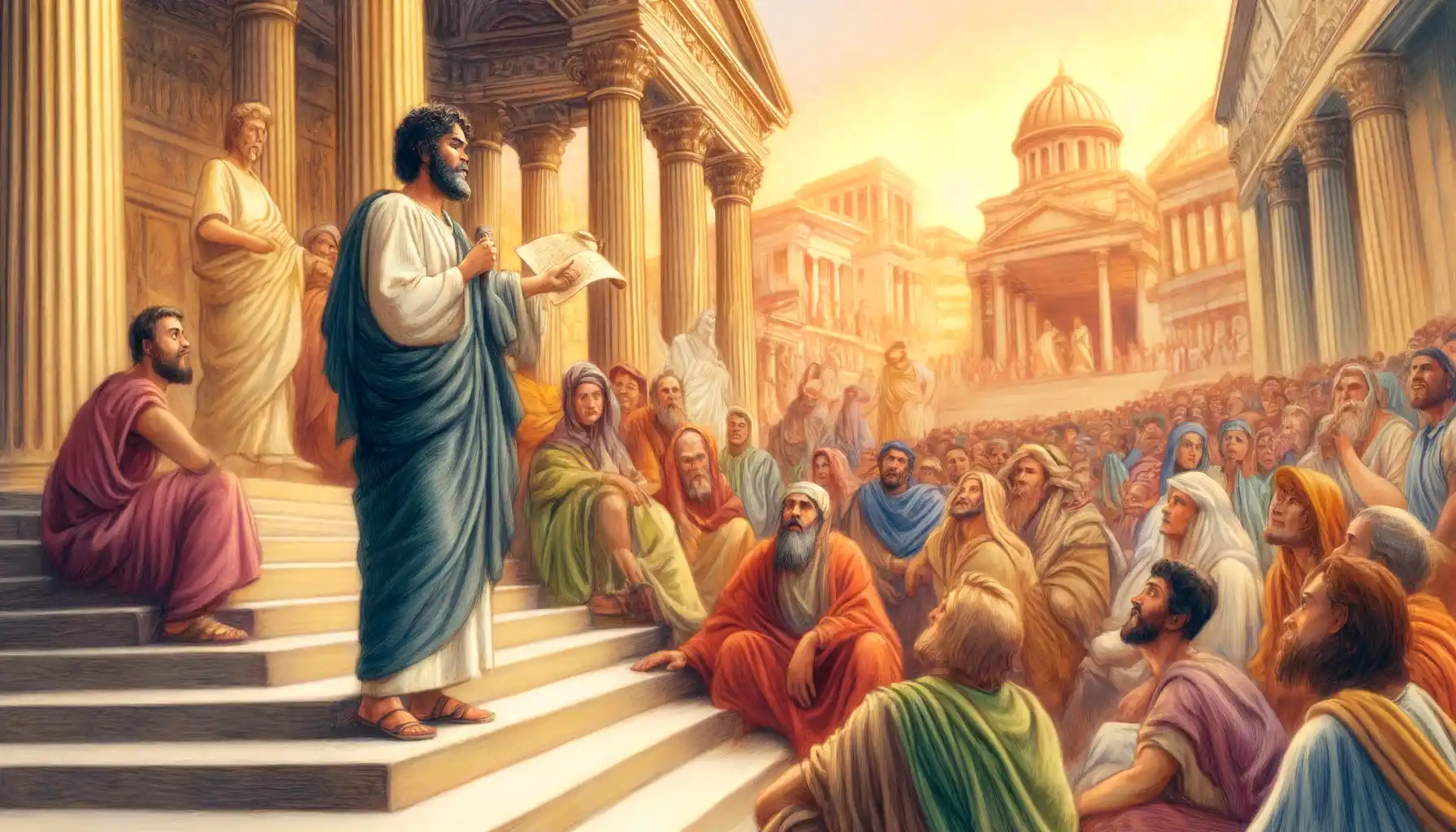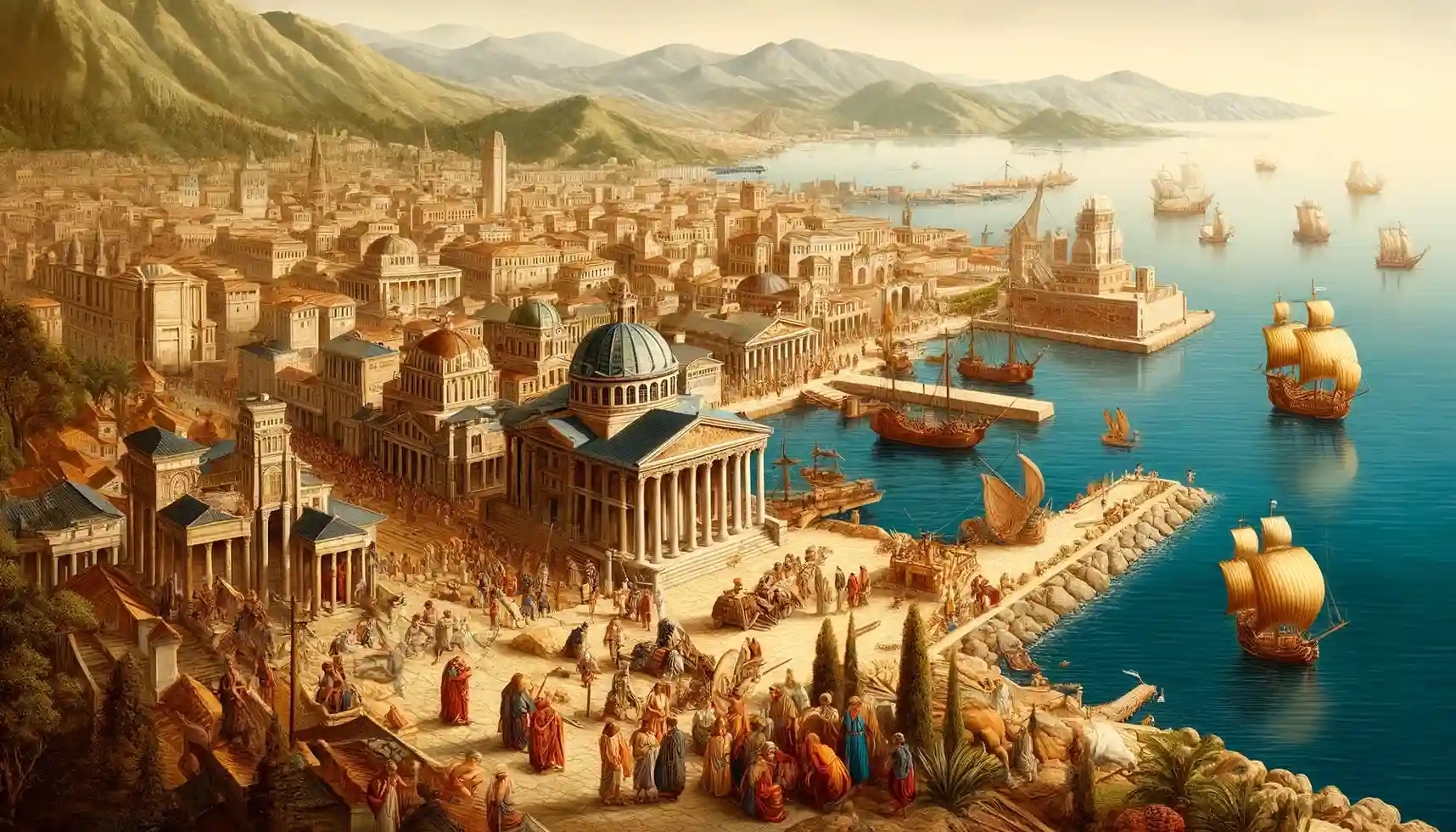Timothy, a close companion and disciple of Paul, played a crucial role in early Christian church leadership and received two epistles from Paul that provided guidance on doctrine, church organization, and personal conduct.
Paul, originally known as Saul of Tarsus, was a major apostle to the Gentiles and a foundational figure in the establishment of Christianity, renowned for his dramatic conversion, extensive missionary journeys, and the authorship of many influential New Testament Epistles.
Thessalonica (now Thessaloniki) was an ancient city in Macedonia, northern Greece, significant in the New Testament for its early Christian community. Founded around 315 BC by King Cassander and named after his wife Thessalonike, it was a key harbor and trade center in the Roman Empire. During Paul’s second missionary journey around AD 50-51, he founded a Christian community there, as described in Acts 17. The city, a cultural hub with Greek, Roman, and Jewish populations, faced persecution, which Paul addressed in his Epistles of First and Second Thessalonians. Today, Thessaloniki is a major Greek city with rich archaeological sites.



